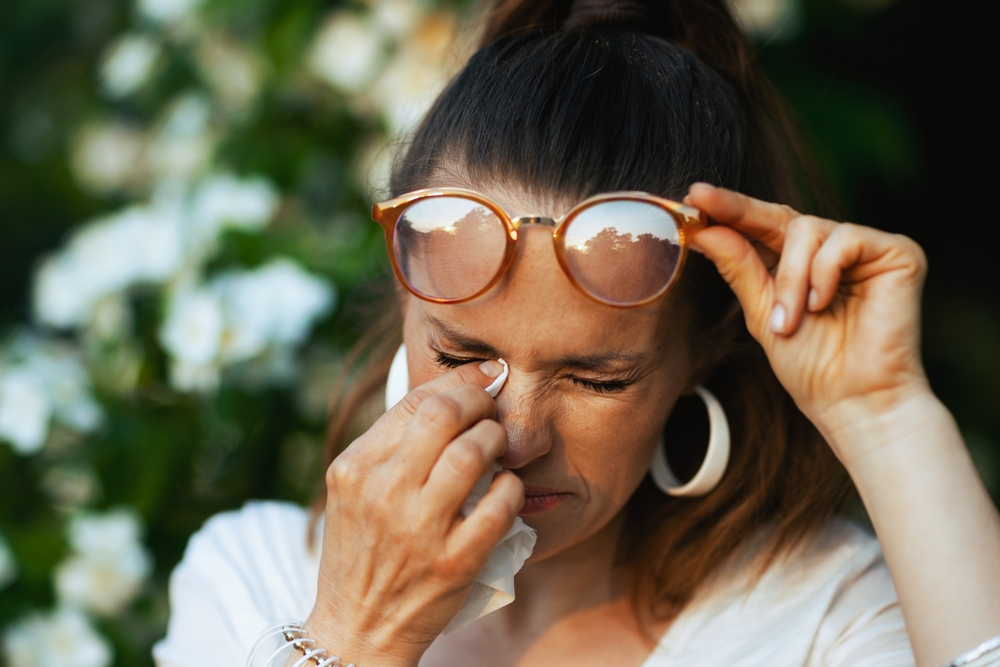
As the temperatures rise and the days get longer, many of us look forward to enjoying more time outdoors. However, summer can also bring an uptick in uncomfortable allergy symptoms. If you’ve noticed itching, redness, watering, or a gritty sensation in your eyes this season, you’re not alone. Understanding why eyes react to allergens, what common summer triggers to watch out for, and how to protect your vision can help you keep your eyes comfortable all summer long.
Why Do Eyes React to Allergens?
Your eyes are constantly exposed to the environment, making them especially sensitive to allergens in the air. When your immune system detects a harmless substance such as pollen or dust, it may overreact by releasing histamines and other chemicals that cause inflammation and irritation in your eyes. This reaction is called allergic conjunctivitis and is a common reason for red, itchy, and watery eyes during allergy season.
Common Summer Triggers for Eye Allergies
Summer introduces a range of allergens that can affect your eyes. The most common triggers include:
• Pollen: While spring is notorious for tree pollen, summer brings high levels of grass and weed pollen. Even on breezy days, pollen can travel miles and easily find its way into your eyes.
• Outdoor Mold: Mold thrives in warm, humid environments, making summer the perfect time for spores to become airborne. Gardening, mowing the lawn, or spending time in damp areas can increase your exposure.
• Dust and Airborne Particles: Dust from construction, outdoor activities, or increased wind can easily irritate sensitive eyes. Summer cleaning and home improvement projects can also stir up indoor dust.
• Chlorine and Pool Chemicals: Swimming is a favorite summer activity, but chlorine and other pool chemicals can irritate your eyes or worsen existing allergies.
• Smoke: Summer bonfires, grills, and even wildfire smoke can contribute to eye discomfort, particularly for those with allergies.
What Can You Do to Prevent or Soothe Eye Allergies?
While you may not be able to avoid allergens completely, there are several steps you can take to protect your eyes:
• Wear sunglasses outdoors: Sunglasses can act as a barrier, reducing the amount of allergens that reach your eyes.
• Rinse your eyes with artificial tears: This can help flush out allergens and provide relief from dryness.
• Keep windows closed: Especially on days with high pollen or mold counts.
• Use air conditioning and air purifiers: These can help filter out allergens from indoor air.
When to See Your Optometrist
While mild symptoms of eye allergies can often be managed with over-the-counter remedies and lifestyle adjustments, it’s important to know when to seek professional help. If your symptoms persist despite home care, it may be time to make an appointment with your optometrist.
Additionally, you should seek professional attention if you experience severe redness, pain, or changes in vision, or if over-the-counter eye drops aren’t providing relief. It’s also wise to consult your eye doctor if you have a history of eye conditions or if you’re unsure about the cause of your symptoms. Your optometrist can recommend prescription medications, identify any underlying conditions, and ensure your eyes stay healthy throughout allergy season.
Protect Your Eyes This Summer
Summer should be a time to enjoy the sunshine, not struggle with irritated eyes. By understanding the most common summer triggers for eye allergies and taking a few preventative steps, you can keep your vision clear and comfortable.
If eye allergies are keeping you from making the most of the summer, schedule a consultation with D Vision Eyecare for personalized treatment. Contact our office in Allen, Texas, by calling (972) 649-4441 to book an appointment today.





